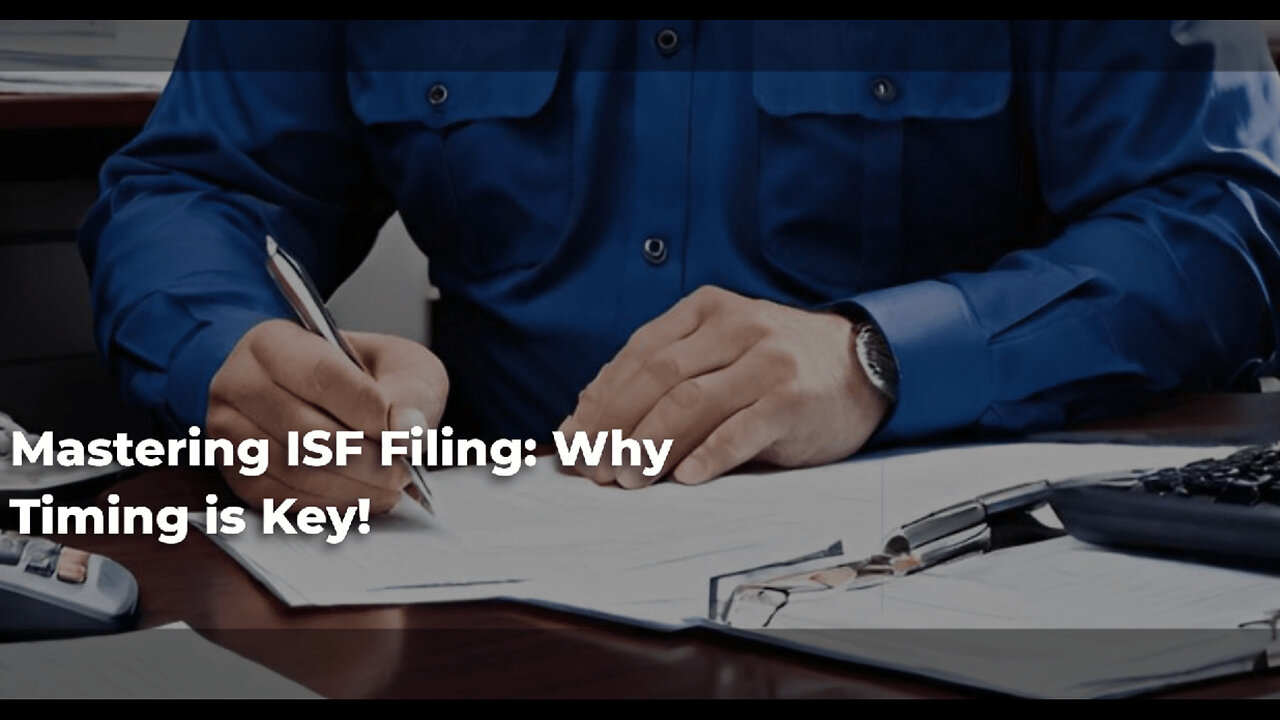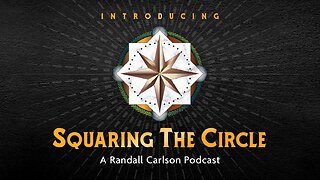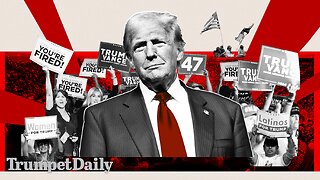Premium Only Content

Title: Mastering ISF Filing: The Key to a Seamless Customs Clearance Process
License To Import // 323-578-6432 // file@licensetoimport.com // www.licensetoimport.com
Title: The Impact of Tariffs on Customs Brokerage and International Trade
Abstract:
In this video, we will explore the impact of tariffs on customs brokerage and international trade. Tariffs are taxes imposed on imported goods, and they play a significant role in shaping trade dynamics and influencing customs brokerage operations. Understanding how tariffs work and their implications is crucial for importers, exporters, and customs brokers alike.
Tariffs in International Trade:
Tariffs are levied by governments to protect domestic industries, generate revenue, or manipulate trade relationships. They can be specific (a fixed amount per unit) or ad valorem (a percentage of the product's value). Tariffs affect the cost of goods, competitiveness, and overall trade patterns, thus directly impacting customs brokerage activities.
Impact on Customs Brokerage:
Tariffs have several implications for customs brokerage. Firstly, brokers need to accurately classify goods to determine the applicable tariff rates. This requires in-depth knowledge of the Harmonized System (HS) codes and effective communication with importers and exporters.
Additionally, tariffs can result in increased paperwork and documentation requirements. Customs brokers must ensure that all necessary documentation, including tariff-related documents, are complete and accurate to avoid delays and penalties.
Changes in Tariff Regulations:
Tariffs are not static and can change frequently. Changes in tariff rates or the imposition of new tariffs can create uncertainty and disruption in international trade. Customs brokers must stay updated on tariff changes to ensure compliance and provide accurate information to their clients.
Mitigating the Impact of Tariffs:
To mitigate the impact of tariffs on customs brokerage and international trade, customs brokers should consider these strategies:
1. Tariff Analysis: Conduct regular tariff analyses to assess the impact on specific goods or industries. This allows brokers to anticipate potential changes and adjust their operations accordingly.
2. Tariff Exemptions: Explore opportunities for tariff exemptions or reductions. Certain goods may qualify for preferential treatment under free trade agreements or other trade programs.
3. Trade Consultation: Engage with trade consultants or legal experts to understand the nuances of tariff regulations and potential strategies to minimize their impact.
4. Supply Chain Optimization: Review and optimize supply chains to minimize the impact of tariffs. This may involve diversification of sourcing, exploring alternative markets, or restructuring supply networks.
Conclusion:
Tariffs have a substantial impact on customs brokerage and international trade. Customs brokers should stay informed about tariff changes, adapt their operations, and provide strategic guidance to importers and exporters. By doing so, brokers can navigate through the complexities of tariffs, minimize costs, and ensure efficient customs clearance for their clients. Stay tuned for more insightful videos on customs brokerage and international trade. Like, share, and subscribe to our channel for future updates!
#ISFfiling #customsbrokerage #importexport #compliance #timelyfiling #customsclearance #internationaltrade #logistics #supplychain #importersuccess
Video Disclaimer Here: This video is solely for education and is not endorsed by any US government agency.
"0:31 - The Basics of ISF Filing
0:58 - The Importance of On-Time Filing"
-
 5:41:10
5:41:10
Vigilant News Network
8 hours agoOfficials CAUGHT Changing Ballots in Arizona | The Daily Dose
103K27 -
 17:30
17:30
Forrest Galante
1 day ago5 Most Dangerous Invasive Species in the World
77.9K32 -
 38:53
38:53
Popcorn In Bed
1 day agoTOP GUN: MAVERICK | FIRST TIME WATCHING | MOVIE REACTION
93.3K21 -
 0:56
0:56
scoutthedoggie
1 day agoAirsoft Tracer Wars
87.3K19 -
 10:23
10:23
Space Ice
1 day agoSteven Seagal's Urban Warfare Is A Real Movie, I Promise - Worst Movie Ever
64.6K32 -
 1:05:04
1:05:04
TampaAerialMedia
1 day ago $10.65 earnedSmoky Mountain Dreams - Pigeon Forge, Cherokee, Bryson City, Gatlinburg & The National Park
58.8K24 -
 58:44
58:44
The Anthony Rogers Show
1 day agoLIVE @ ST ANDREWS CINEMA - Episode 2
65.2K10 -
 1:20:16
1:20:16
Squaring The Circle, A Randall Carlson Podcast
1 day ago#026 The Coming Changes In Science and Education - Squaring the Circle: A Randall Carlson Podcast
47.7K7 -
 33:11
33:11
hickok45
11 hours agoSunday Shoot-a-Round # 254
36.5K111 -
 1:03:40
1:03:40
Trumpet Daily
2 days ago $13.73 earnedIt Was a Red Wave - Trumpet Daily | Nov. 8, 2024
33.2K21